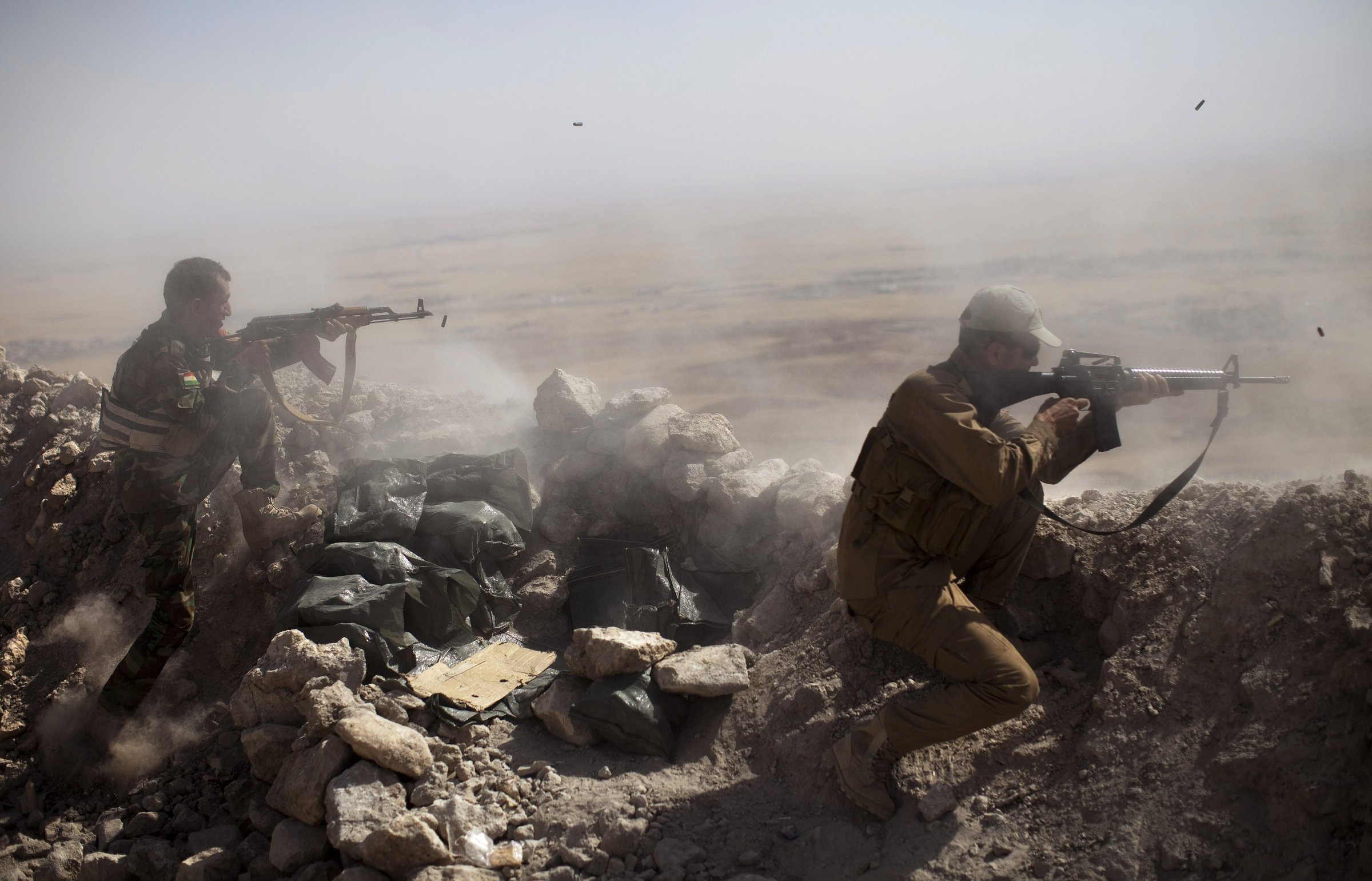
To understand why President Obama has such a tough job when he explains to the nation Wednesday night what he intends to do about the Islamist jihadists overrunning Iraq and Syria, just step back 575 days.
“After a decade of grinding war, our brave men and women in uniform are coming home,” he told a cheering Congress in his State of the Union address Feb. 12, 2013. “Because of them, we can say with confidence that America will complete its mission in Afghanistan and achieve our objective of defeating the core of al Qaeda.”
Instead, he’s sending troops back to Iraq to combat a virulent al Qaeda offshoot. Politically, it’s going to be a difficult sales job for a President whose saw it as his mission, when first elected to the White House six years ago, to extricate the U.S. from the Iraq and Afghan wars. In a twist, he has now vowed to “defeat” the Islamic State in Iraq and Syria (ISIS).
That’s not an easy military challenge, given the restrictions imposed by geography, conflicting alliances and the curbs Obama himself has placed on the use of U.S. military force. “The United States simply does not have a near-term option that offers a clear chance of victory or stability in Syria, and may not have one for years to come,” military analyst Anthony Cordesman of the Center for Strategic and International Studies, warned Tuesday.
“You are no longer fighting an insurgency,” the masked killer belonging to the Islamic State of Iraq and Syria said in the video purporting to show the beheading of U.S. journalist James Foley released Aug. 19. “We are an Islamic army, and a state.”
Obama’s challenge Wednesday night will be to convince the American public—increasingly fearful of the potential ISIS threat—that he’s serious about defeating them without launching a third U.S.-led, post-9/11 war.
So far, the only thing Obama has declared about his military intentions is that it won’t involve U.S. boots on the ground. That’s left some military experts seething. “My hero growing up was Rocky Marciano,” says Anthony Zinni, a retired Marine general who led U.S. Central Command from 1997 to 2000. “If Rocky Marciano said before a heavyweight championship fight, `I’m not going to throw a right hook all throughout this fight, that’s off the table’—why would you tell your enemy what you’re not going to do?”
With that arrow self-plucked from his quiver, look for Obama to reach for these Wednesday night:
Allies—What nations will he enlist in the fight—and how much will they be willing to do? Under the ancient axiom that the enemy of my enemy is my friend, Obama finds himself tacitly allied with Iran and Syria’s Bashar al-Assad. ISIS, along with other rebel groups, has been trying to topple Assad for years. Obama himself has called for Assad to step down in hopes of ending a Syrian civil war that has killed nearly 200,000. How much military help are nearby nations that have stayed largely on the sidelines in the fight against ISIS, including Jordan and Turkey, willing to give? How many Arab nations are willing to send ground troops into Iraq, and perhaps Syria, to root out ISIS? Will Britain and France, along with well-armed Arab states like Saudi Arabia, be willing to attack ISIS?
Training—Obama is likely to propose a major push to train and arm moderate Syrian rebels to battle ISIS, and to expand counter-terrorism operations in the region.
Troops—The U.S. already has some special-operations troops on the ground inside Iraq, as part of a growing contingent of more than 1,000 troops there to protect U.S. interests. They’re critical to assessing the relative strengths of ISIS and Iraqi units. But Obama has made clear the heavy lifting will have to be done by local soldiers. “The boots on the ground have to be Iraqi” inside Iraq, he said Sunday on NBC’s Meet the Press. “And in Syria, the boots on the ground have to be Syrian.”
Targets—The U.S. military has bombed ISIS targets in Iraq about 150 times in the past month. The attacks, coordinated with ground-based Iraqi security forces, including Kurdish pesh merga forces, have stalled ISIS’s advance. The U.S. partnered with Afghanistan’s Northern Alliance force after invading that country in 2001 and drove the Taliban from power. That could serve, Pentagon officials say, as a template for an expanded anti-ISIS campaign.
Obama is prepared to expand U.S. bombing into Syria, denying ISIS forces the sanctuary they have enjoyed since entering Iraq early this year. On Sunday, he declared the U.S. “will hunt down [ISIS] members and assets, wherever they are.” The world will be watching Wednesday night to see if his actions match his words.
More Must-Reads from TIME
- Cybersecurity Experts Are Sounding the Alarm on DOGE
- Meet the 2025 Women of the Year
- The Harsh Truth About Disability Inclusion
- Why Do More Young Adults Have Cancer?
- Colman Domingo Leads With Radical Love
- How to Get Better at Doing Things Alone
- Michelle Zauner Stares Down the Darkness
Contact us at letters@time.com